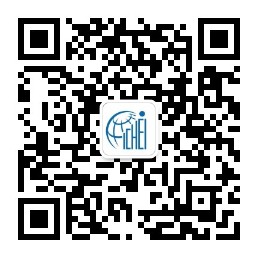UNESCO-ICHEI and UNESCO Abuja and Dakar Offices formalize partnership for higher education
On 11 May 2021, the International Centre for Higher Education Innovation under the auspices of UNESCO (hereinafter referred to as "UNESCO-ICHEI"), together with the UNESCO Multisectoral Regional Office for West Africa (hereinafter referred to as "UNESCO Abuja Office") and the UNESCO Multisectoral Regional Office for West Africa (Sahel) (hereinafter referred to as "UNESCO Dakar Office") virtually signed a Partnership Agreement. The parties agreed to jointly promote access to, quality and inclusion of Higher Education using innovations of Information and Communication Technologies (ICTs) in the ECOWAS region of West Africa.
 Group photo
Group photo
 Online group photo
Online group photo
 Director LI Ming signed the Partnership Agreement
Director LI Ming signed the Partnership Agreement
 Dr. Dimitri Sanga signed the Partnership Agreement
Dr. Dimitri Sanga signed the Partnership Agreement
During the virtual signing ceremony, Dr. Dimitri Sanga, Director of UNESCO Abuja and Dakar Offices highlighted that UNESCO-ICHEI's "ability to react quickly and effectively to reduce the harmful effects of this pandemic, through concrete capacity building actions in E-Learning, Big Data and Artificial Intelligence (AI) for the improvement of access and quality in higher education in Africa is much appreciated by both students and academics in West Africa." He also said that UNESCO Abuja and Dakar Offices consider UNESCO-ICHEI as a vital partner to better promote quality higher education. Regarding the cooperation between the two organizations, he suggested that at least five countries in the ECOWAS region be identified as benefiting from projects of UNESCO-ICHEI, and that a framework agreement with implementation modalities be signed by the end of 2021.
Professor LI Ming, Director of UNESCO-ICHEI said that West Africa is one of the priority areas of UNESCO-ICHEI's work to support countries in the digital transformation of higher education. In line with this, the International Institute of Online Education (IIOE), an open online education platform launched by UNESCO-ICHEI and its global partners to strengthen institutional capacity of online and blended higher education, has carried out online trainings during the COVID-19 pandemic to help universities in the ECOWAS region to ensure education continuity and build teacher ICT capacity.He said that UNESCO-ICHEI will continue to work with UNESCO Abuja and Dakar Offices to support ECOWAS countries in online and blended education transition and higher education digital transformation in the post Covid-19 era through provision of IIOE capacity building trainings for HE teachers, co-construction and upgrading of online curriculum and cooperation on research of higher education digital transformation. He said that IIOE is a joint initiative in the spirit of co-construction and sharing with mutual benefits and is open to all ECOWAS countries and universities to benefit from its expertise, resources and network."
The projects initiated by UNESCO-ICHEI and IIOE in 2020 and widely disseminated by UNESCO regional offices in Abuja and Dakar are recognized as relevant opportunities to improve the quality of higher education.The signing of this MoU comes at the right time to meet some pressing needs identified by our Member States. For UNESCO, this partnership has a bright future, because it would certainly endow the youth and our universities with the necessary skills to be actors in the development of our societies."
——Dr. Dimitri Sanga, Director a.i. and Representative of UNESCO Abuja Office, Regional Director and Representative of UNESCO Dakar Office
"It is opportune time that we sign this agreement, to formalize the cooperation already carried out between the parties in terms of building digital capacities of higher education teachers and institutions in West Africa.UNESCO-ICHEI would like to deepen the partnership with UNESCO Abuja Office and UNESCO Dakar Office. We hope that under the leadership of Dr Dimitri Sanga, the two UNESCO regional offices can play an active role in coordinating the cooperation between UNESCO-ICHEI and national ministries of higher education in ECOWAS countries, to jointly design and carry out projects of online and blended learning on the national level."
——Prof. Dr. Ming Li, UNESCO-ICHEI
According to the Partnership Agreement, the parties will cooperate to
⚪ improve educational digital infrastructure in selected universities;
⚪ promote and co-construction higher education teachers' capacity building programmes in Artificial Intelligence (AI), Big Data, Internet of Things and Cloud Computing;
⚪ co-organise events on higher education;
⚪ conduct joint research on higher education in Africa, such as teacher ICT competency frameworks in partnership with national authorities;
⚪ design policies and strategies for higher education digital transformation;
⚪ support quality assurance of online and blended teaching and learning.The parties also stressed the importance to include people living with disabilities in higher education, and to encourage girls and women to embrace STEM sectors and programmes.
In July 2020, UNESCO-ICHEI signed a Partnership Agreement with UNESCO Abuja Office. Since then, the two parties have cooperated closely to promote IIOE's capacity building programmes in online learning, Big Data and AI for the higher education community in West Africa. UNESCO Dakar Office has also been actively mobilizing and coordinating the higher education community in West Africa (Sahel) to participate in IIOE capacity building programmes. The new Partnership Agreement signed in May 2021 builds on such cooperation to cover the entire ECOWAS region. As agreed by the two Directors, UNESCO-ICHEI, UNESCO Abuja Office and UNESCO Dakar Office will jointly identify countries in the ECOWAS region and collaborate with their national ministries of higher education to design and carry out projects of online and blended learning on the national level, supporting quality higher education through digital innovations and transformation.
Brief introduction of UNESCO Abuja Office
The UNESCO Abuja Office was created in the early 1960s as a National Office. In 2013 UNESCO Abuja Office evolved into a Multisectoral Regional Office for West Africa. It covers eight countries, namely Benin, Côte d'Ivoire, Ghana, Guinea, Liberia, Nigeria, Sierra Leone, and Togo. In this region, UNESCO is present with National Offices in Ghana and Côte d'Ivoire, and with Antennas in Liberia, Togo, and Benin. In addition, a project office has been established in 2018 in Sierra Leone and Guinea.The Office works across all the five Major Programme Sectors of UNESCO: Education, Natural Sciences, Human and Social Sciences, Culture, and Communication and Information. It is committed to collaborating with the Member States and other partners to implement a stronger and better-targeted strategy to build peace, eradicate poverty and achieve inclusive sustainable development. (source: https://en.unesco.org/fieldoffice/abuja)
Brief introduction of UNESCO Dakar Office
The Dakar Office was originally created in 1970 to address educational planning in sub-Saharan Africa. The Office has gradually extended its activities to other areas of educational development, eventually covering the whole of the education system as well as other areas of UNESCO's competencies (Natural Sciences, Social and Human Sciences, Culture, Communication and Information). Until 2014, the office functioned as the Regional Office for Education, coordinating UNESCO's education program throughout Sub-Saharan Africa, today it is a regional office covering seven West African countries ( Burkina Faso, Cabo Verde, The Gambia, Guinea-Bissau, Mali, Niger and Senegal) (source: https://en.unesco.org/fieldoffice/dakar)




